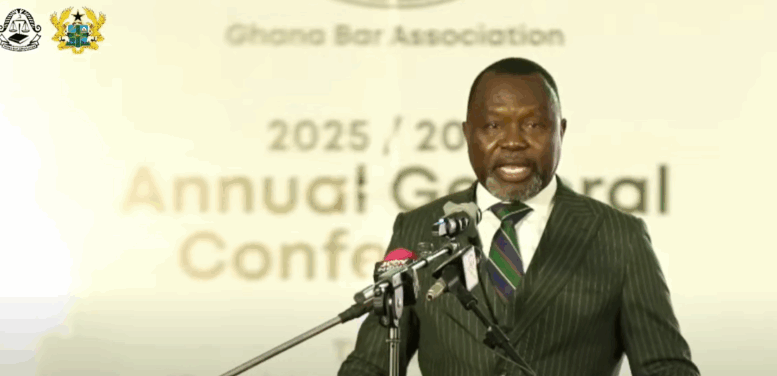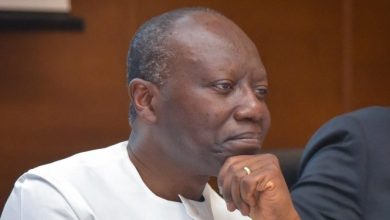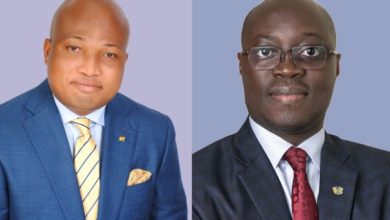
Attorney-General Dr Dominic Ayine has accused the Ghana Bar Association (GBA) of leaving its professional path and turning partisan.
Speaking at the GBA’s annual conference in Wa, Dr Ayine expressed disappointment over what he described as the association’s inconsistent advocacy and bias in addressing constitutional matters.
“We must remember that our allegiance is first and foremost to the constitution and this republic, not to transient political interests,” he told members. “
“Our republic has tested and continues to test the resilience of its democratic institutions. In doing this, the Bar has played a crucial role in assisting the Supreme Court to interpret and enforce the Constitution. But outside the courtroom, the advocacy of the Bar as a professional group has lacked consistency, bringing into question its adherence to principles.”
Dr Ayine accused the GBA of failing to show fairness in its positions on critical national issues. He suggested that the association’s voice often mirrors that of the opposition, rather than maintaining neutrality. According to him, the Bar had become “self-serving”, putting its own interests above those of the legal profession and society.
Citing examples, the Attorney-General pointed to the association’s silence during the removal of former Electoral Commission Chairperson, Mrs Charlotte Osei, and her deputies, contrasting it with its vocal opposition to the recent process to remove Chief Justice Gertrude Torkonoo.
“When in 2015 an Article 146 petition was received by the Chief Justice in relation to the former Chairperson of the Commission on Human Rights and Administrative Justice, Madame Loretta Lampe, the Bar failed to speak out about the process,” Dr Ayine said.
“In the run-up to the 2016 election, the then-opposition New Patriotic Party engaged the Electoral Commission in court battles over the voter identification system. This gave rise to the Abu Ramadan line of cases. Immediately upon assuming office in 2017, an Article 146 petition was filed for the removal of the Chairperson of the Electoral Commission, Mrs Charlotte Osei, and her deputies from office. The Bar saw no basis to speak out about compliance with due process.”
He added that, “In very recent times, the Bar found its voice when petitions based upon the same constitutionally defined procedures were brought in respect of the removal from office of the former Chief Justice, Mrs Gertrude Torkonoo.
Dr Ayine criticised the association’s selective advocacy on key constitutional issues
“The honest question we have to ask ourselves is, what changed? The three petitions concerned officeholders of critical constitutional bodies. The independence of these institutions is guaranteed by the Constitution, and all three occupants were women of repute and members of our noble profession. Yet, the Bar found its voice only in relation to the third petition. Coincidentally, the voice of the Bar amplified the voice of the opposition.”




